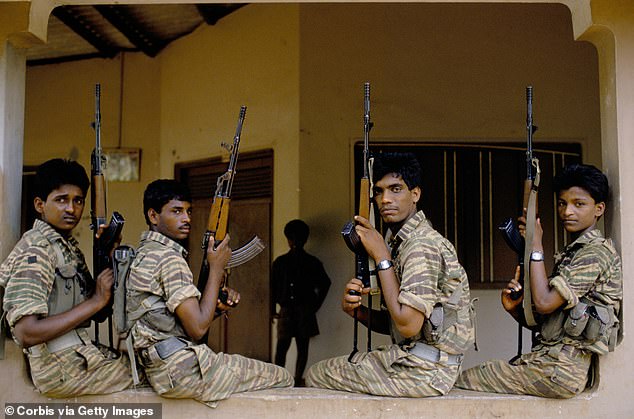
An asylum seeker who allegedly recruited child soldiers has won an appeal to stay in Britain.
The Sri Lankan, who remains unnamed after he was granted anonymity by the Upper Tribunal of the Immigration and Asylum Chamber, faces claims he ‘enlisted children under the age of 15’ to separatist terrorist group Tamil Tigers.
The tribunal also heard he was working for the Tamils Rehabilitation Organisation [TRO] – a refugee charity – but was secretly supplying information.
The French Justice system previously ruled he should be denied asylum due to allegations that he was a war criminal.
And the Home Office agreed, refusing the man refugee status and attempting to deport him.
He then won an appeal against the decision in 2023, with a judge citing a lack of evidence to support the accusations.
The Home Office has now lost an appeal of their own, meaning the asylum seeker can remain in the country.
British judges stuck with the ruling two years ago and said there is not enough evidence to say the allegations are true.

An asylum seeker who allegedly recruited child soldiers for the Tamil Tigers terrorist group has won an appeal (pictured: Tamil Tigers fighters in a stock photo)

The Sri Lankan faces claims he ‘enlisted children under the age of 15’ to the separatist group (pictured: Stock photo of a Tamil Tigers recruitment poster)

The Home Office has now lost an appeal at the Upper Tribunal of the Immigration and Asylum Chamber, pictured, meaning the asylum seeker can remain in the country
The Home Office’s original case referred to the French asylum court’s verdict that he ‘ought to be excluded from a grant of asylum under Article 1F of the Refugee Convention due to his alleged involvement in war crimes in this case the alleged recruitment of children’.
But a judge found that the government department ‘had not shown serious grounds for concluding that [the Sri Lankan] was guilty of the war crime of conscription or enlistment of children under the age of 15 or using them to participate actively in hostilities’.
The judge added: ‘I am not satisfied even on the evidence of his own admissions, accurate or otherwise, to the French that this goes far enough to show that the [Sri Lankan] was effectively collecting information which he knew was going to be misused, and misused specifically for the recruitment of child soldiers under the age of 15.
‘Nor am I satisfied that there are serious reasons for considering on all the evidence adduced that the [Respondent] has been shown to have knowingly materially assisted in the recruitment of child soldiers under the age of 15, by the work done by the T.R.O. in gathering information, possibly subsequently used by the L.T.T.E. for that purpose.’
Home Office lawyers argued at the appeal in London that the judge had not attached enough wait to the French court’s decision.
But, Deputy Upper Tribunal Judge Adrian Seelhoff disagreed, saying: ‘The Judge assessed that evidence to see if it supported the [Home Office’s] case that [the Sri Lankan], whilst working for the TRO, supplied details which the LTTE used to recruit child soldiers.
‘[The Home Office’s] position before us was not that the Judge was bound to follow the French Court decision, but that he had not given adequate reasons for reaching a different decision or that he failed to attach weight to the decision.
‘We find that the Judge did give adequate reasons for not following that decision, and for the weight he attached to it and that accordingly there is no error of law in the decision under appeal.





